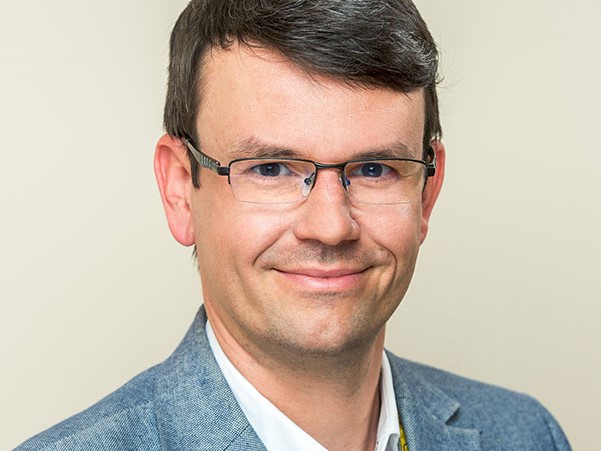We need new ways of math experiences for sustainable economic decisions, according to a Corvinus researcher

A book on artificial intelligence in business applications, with case studies, was published by the renowned publisher, Routledge entitled Artificial Intelligence for Business at the end of November. Máté Farkas-Kis, researcher at the Corvinus University of Budapest, also includes a book chapter in which he points out that the exploitation of the digital revolution and one of the biggest economic challenges of our time, the transition to sustainability, cannot exist without high-quality decisions, which requires high-quality mathematics education.
There is almost no decision-making situation in the life of a company that does not involve some kind of financial analysis, but understanding these is all about understanding the numbers. Therefore, when we talk about managerial thinking and decision-making, mathematical studies cannot be bypassed, as they serve the purpose of teaching us to think and solve problems; they therefore play a huge role in the quality of managerial decisions. However, several studies have shown in the past that psychological – emotional and motivational – influences make real decision-making different from rational rules, with limited rationality. And the self-image of rationality and mathematical knowledge is strongly negative, so performance anxiety is common, blocking the brain’s working memory, which has a negative impact on numeracy, further affecting this phenomenon.
What should effective and sustainable mathematics education look like?
Máté Farkas-Kis proposes to use the UN’s definition of sustainability in a new way to reform mathematics education. By analogy with the main idea of meeting the needs of the present without reducing the ability of future generations to meet their own needs, sustainability-oriented mathematics education should also encourage a way of thinking that does not reduce the self-esteem and self-fulfilment of future generations. Farkas-Kis also adapted the three related principles to mathematics education.
- One of the UN’s sustainability principles is that what we release into the environment should not exceed the environment’s capacity to absorb and process. In a similar way, the amount of mathematical knowledge to be taught should not exceed the pupils’ capacity to assimilate and process it.
- The other sustainability principle is that what we take out of the environment should not exceed its regenerative capacity. This means that the expected performance in mathematics teaching should not exceed the performance of the pupils.
- The third UN principle on sustainability states that the rate of use of non-renewable resources should not exceed the rate at which we can replace them with renewable resources. Similarly, in mathematics education, if students’ self-esteem declines because of a poor solution to a problem, this decline should not exceed a level from which students no longer want to return to understanding and self-actualisation.
“The results suggest that the teacher plays a key role in the renewal of mathematics education from a sustainability perspective. Further research is needed to understand our relationship with mathematics in more depth and to further improve our decision-making skills,” stressed Máté Farkas-Kis.
Mathematics education needs to be taught without losing the initial positive experience
The Corvinus University researcher based her recommendations on the results of an online questionnaire to identify typical attitudes towards mathematics, how they are influenced by experiences and perceptions of the role of mathematics. In Hungary, maths is taught for 12 years; and the results shared in the book chapter show that as you progress through the educational levels, the performance of respondents decreases. While in primary school, 91% of them remember getting at least a four in maths, this drops to 76% in secondary school, 54% in higher education and less than 40% during the academic degree. The latter category has become bipolar, with a third of those who admit to not understanding mathematics. However, on a scale of one to ten, measuring how rational they are in their decisions, the average was 7.4, so the majority of people like to think they make their decisions rationally.
80% of those who completed the questionnaire said that learning maths is useful because it teaches you to think logically. So, most of us have understood that, although mathematical performance is typically measured by numerical tasks, mathematics is not just about counting. The survey also asked respondents how useful they think learning maths is for certain professions. As expected, mathematics was seen as very useful for numeracy and degree-related professions, with the exception of culture, arts and sport, but not as having much benefit in typically human, administrative or simple activities.
So, if we want to develop management models that ensure sustainability, it is expected that sustainability decision-makers have adequate mathematical skills. This requires better mathematical knowledge and better, methodologically renewed mathematics education. One where initial successes are not lost along the way, where students do not look for reasons for possible failures due to a lack of a “maths brain”, and where they can retain the initial positive experiences with mathematics to achieve their later learning goals.